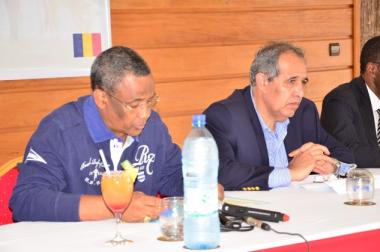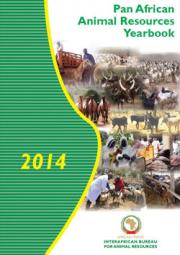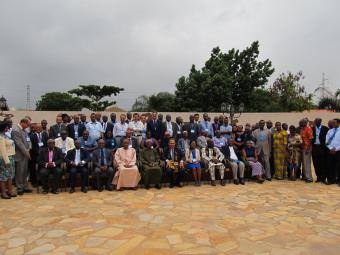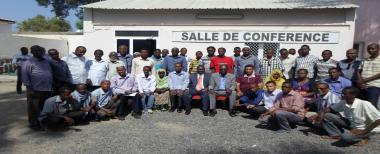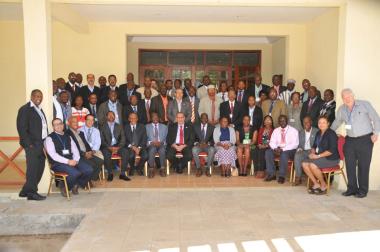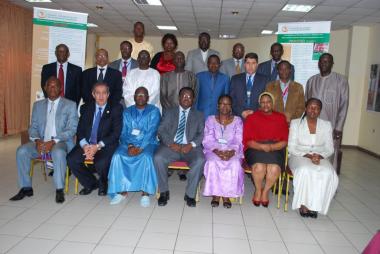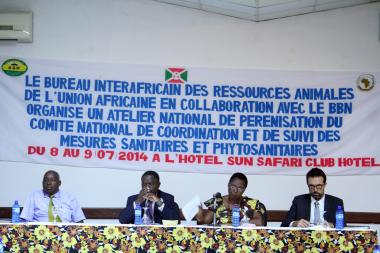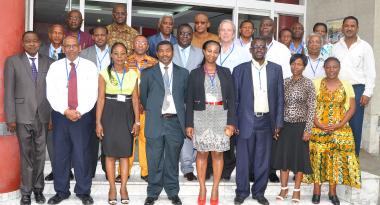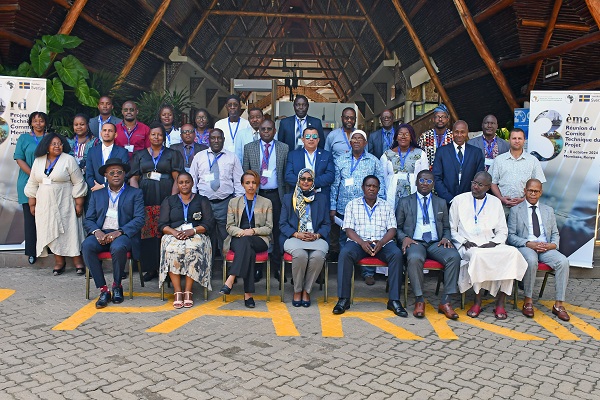
There is tremendous untapped potential in Africa's aquatic ecosystems to aid in the continent's long-term economic growth and food stability. In addition to protecting biodiversity and bolstering the blue economy, these ecosystems are vital to people's ability to make a living. Regarding this matter, on October 7-8, 2023, in Mombasa, Kenya, the "Conserving Aquatic Biodiversity in the Africa Blue Economy" project had its third Project Technical Committee (PTC) meeting, wherein a wide range of stakeholders gathered to review the project's achievements and plan for its future interventions.
Dr. Salih, Director AU-IBAR, noted that the initiative is in its final year of implementation, with an additional 14-month extension granted by the Swedish International Development Cooperation Agency (SIDA), starting October 15, 2024. This extension reflects the commitment of the project's technical committee and SIDA to supporting Africa's aquatic ecosystems. She further emphasized the impressive milestones achieved so far, which include raising awareness, strengthening institutional capacities, and advancing transboundary processes for the management of aquatic biodiversity, particularly fisheries resources.
“These accomplishments have been possible due to the willingness and unique collaborative approach of partners working in the same aquatic space,” Dr. Salih stated. She further acknowledged the efforts of various partners, including the The Food and Agriculture Organization of the United Nations (FAO); West Indian Ocean Marine Science Association (WIOMSA); UNEP’s Abidjan and Nairobi Conventions; Regional Fisheries bodies (FCWC, COREP, and LVFO); Regional Economic Communities (SADC Secretariat, IGAD, ECCAS, EAC); International Union for Conservation of Nature (IUCN); World Wildlife Fund (WWF); Kenya Marine and Fisheries Research Institute (KMFRI); Mabuyi Development Planners in South Africa; Zanzibar Seaweed Cluster Initiative in Tanzania; The Swedish Agency for Marine and Water Management (SWAM). Dr. Salih highlighted the exceptional collaboration between African Union Member States in piloting the project, which has minimized duplication of efforts and fostered ongoing initiatives.
In her remarks, Ms. Beza Berhanu from the Swedish International Development Cooperation Agency (SIDA), funders of the Project commended the work done so far, noting the critical role of protecting the environment to improve livelihoods. She emphasized that by safeguarding marine ecosystems, communities are able to maintain sustainable livelihoods, and gender mainstreaming has been a key focus area. However, Ms. Berhanu also pointed out that challenges such as overfishing, climate change, and pollution continue to threaten Africa’s aquatic ecosystems. SIDA remains committed to supporting the project through its extension phase, ensuring that women and youth benefit from future initiatives.
Representative from the Food and Agriculture Organisation, Dr. Ndiaga Gueye, noted that the existence of human beings is linked to natural world. Fisheries depends on wild ecosystems, oceans and inland waters. Need to ensure residence. Need sensitization on the environment. He emphasized the need for joint efforts required for conversation of aquatic biodiversity.
The PTC meeting also focused on the significant progress made in Marine Spatial Planning (MSP), the establishment of Marine Protected Areas, and enhancing Monitoring, Control, and Surveillance systems. The project has worked to address the negative impacts of mining, coastal development, and marine tourism, while also developing strategies to tackle plastic pollution. Notably, gender mainstreaming has been prioritized in the conservation of aquatic biodiversity, with South Africa receiving support to develop a National Gender Strategy for Fisheries and Aquaculture.
Despite the achievements, Africa’s aquatic ecosystems continue to face numerous challenges. Climate change, habitat loss, and pollution are growing threats. Overfishing, particularly by industrial fleets, is depleting resources that millions depend on for food and employment. These challenges require collective action and strong policy implementation to ensure sustainable management of Africa’s aquatic resources.
The meeting was officially opened by Mr. Kundu, the Cabinet Secretary for Mining, Blue Economy, and Maritime Affairs, Government of Kenya, who thanked AU-IBAR for facilitating shared experiences to support the program. The Cabinet Secretary stressed the importance of the program's impact on the livelihoods of millions who depend on aquatic biodiversity. Kenya, he noted, has invested heavily in regulatory frameworks such as the Fisheries Management and Development Act to support the bottom-up transformation agenda and improve rural development.
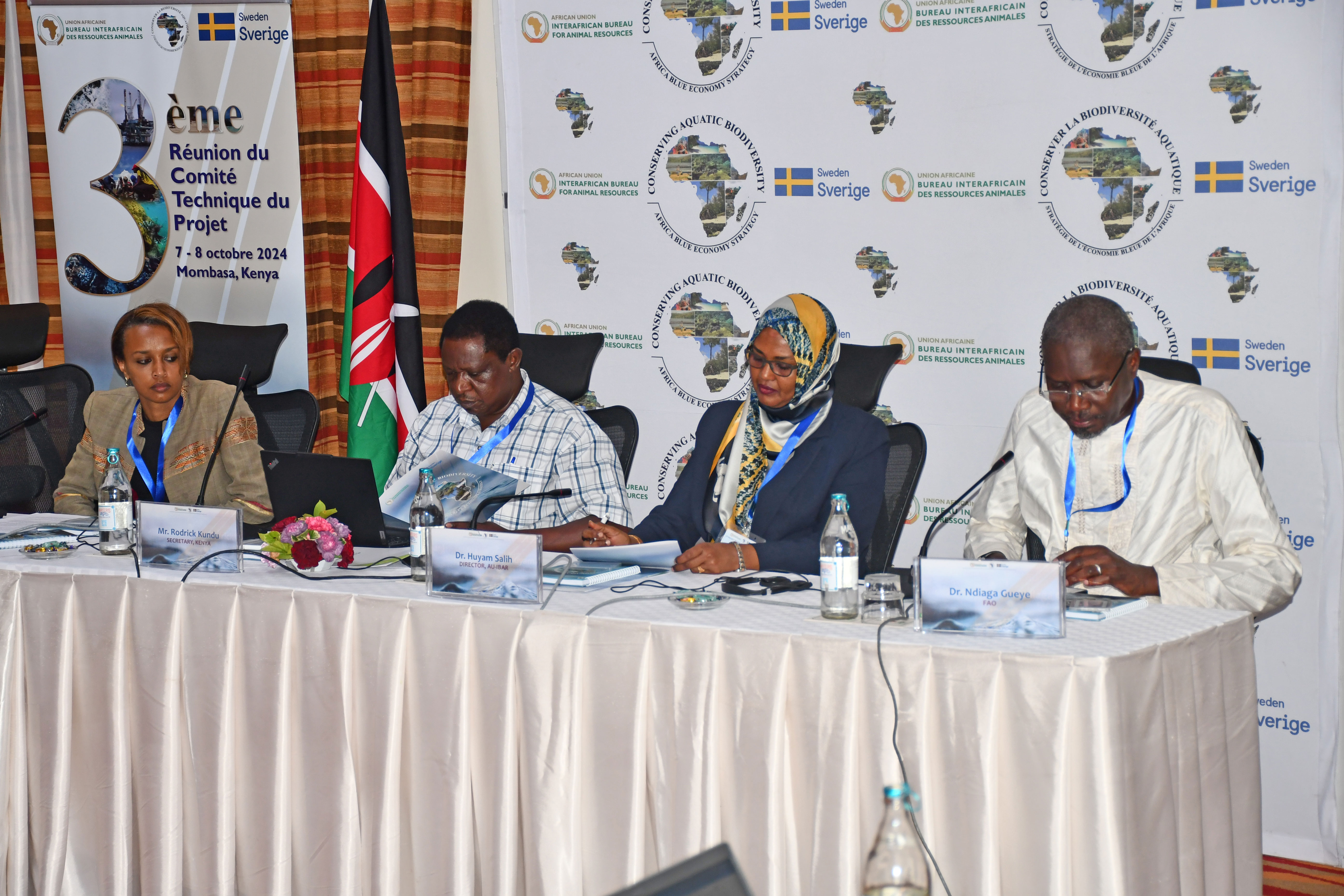
Above - From Left to Right: Ms. Beza Berhanu; Mr. Kundu; Dr. Salih & Dr. Ndiaga Gueye
The Way Forward
The PTC recommended proceeding with a second phase of the project, emphasizing the need to consolidate and execute remaining activities during the no-cost extension phase. In particular, the PTC stressed the importance of providing alternative livelihood options for vulnerable communities, supporting small-scale fisheries, and prioritizing socio-economic benefits for women and youth. Additionally, it recommended the development of a strategy for tackling plastic pollution, with a focus on bioplastics. A proposal was made for continued support in developing gender-sensitive fisheries policies. To ensure lasting impact, the project aims to strengthen capacity in data collection and analysis, expand the scope of Marine Spatial Planning, and establish a dedicated communication task force. Collaborative efforts with partners will also be vital to achieving the overall objectives of the project.
The third PTC meeting, attended by high-level representatives from Kenya, Sweden, AU Member States, regional economic communities, development partners, and experts, reaffirmed the project's mission to conserve aquatic biodiversity, promote sustainable livelihoods, and inclusive economic growth in Africa's blue economy. The recommendations would be channeled to the Project Steering Committee to be held on 9th October 2024.

